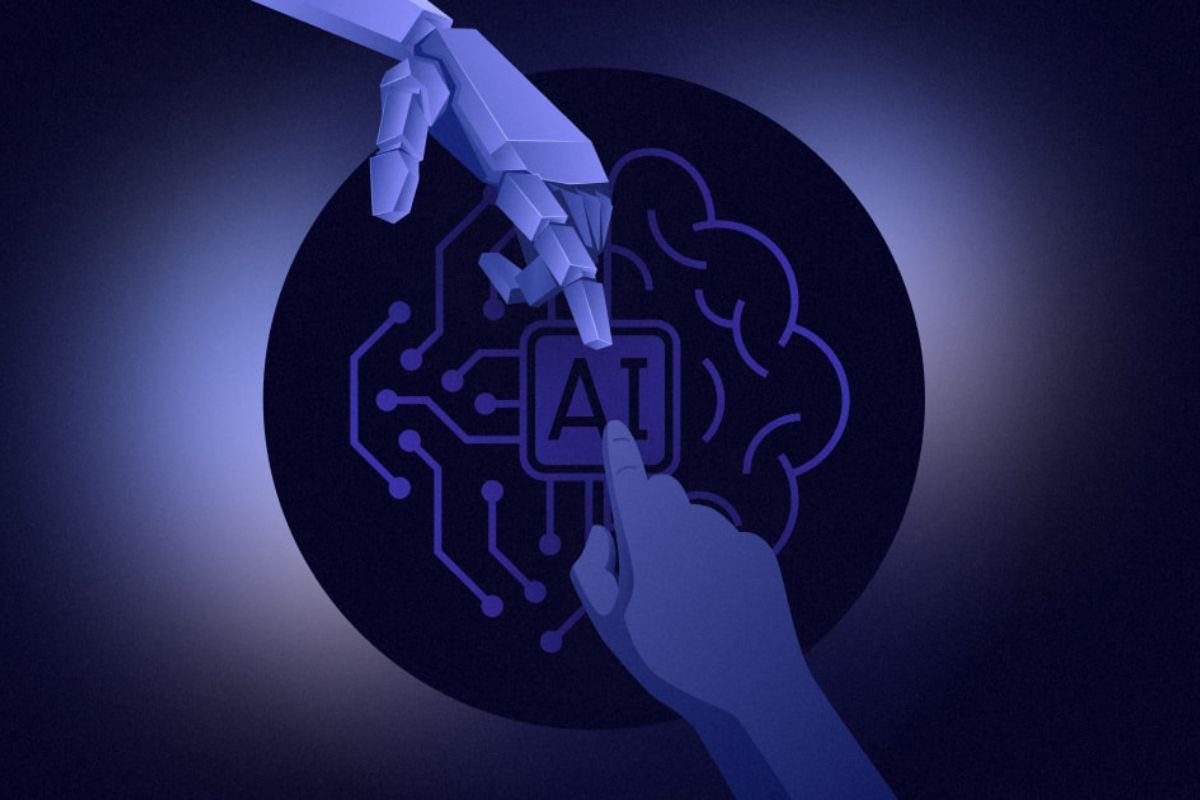In an era defined by rapid technological advancements, businesses that fail to adapt risk being left behind. Artificial intelligence (AI), blockchain, and 5G connectivity are no longer futuristic concepts—they are here, reshaping industries and setting new benchmarks for innovation and efficiency. However, integrating these transformative technologies requires more than enthusiasm; it demands a well-crafted strategy.
While the opportunities are immense, businesses face challenges such as high implementation costs, technical complexities, and workforce readiness. Yet, those who navigate these hurdles can unlock unparalleled growth, efficiency, and market leadership. This guide explores how organizations can strategically integrate AI, blockchain, and 5G, overcome adoption barriers, and position themselves for long-term success in an increasingly digital world.
Whether you’re a startup exploring scalable solutions or an established enterprise seeking a competitive edge, this article will provide actionable insights, real-world examples, and practical steps to harness the full potential of these game-changing technologies.
Integrating Emerging Technologies in 2025: Building a Future-Ready Business
The combined power of AI, Blockchain, and 5G represents a transformative opportunity for businesses—but harnessing it requires a deliberate and strategic approach. Integrating these technologies involves aligning them with business goals, investing in infrastructure, and cultivating a workforce ready to embrace the future.
Actionable Steps for Integration
- Assess Business Needs
Conduct a thorough analysis to identify areas where AI, Blockchain, and 5G can drive measurable improvements. Prioritize initiatives that align with strategic objectives and deliver tangible ROI. - Collaborate with Technology Experts
Partner with technology providers and consultants to customize solutions tailored to your industry. Building strong collaborations ensures that implementations are effective, scalable, and future-proof. - Pilot Programs: Start Small, Scale Smart
Launch pilot projects to test feasibility, measure performance, and evaluate return on investment. These trials help businesses refine their approach before committing to full-scale deployment. - Upskill and Empower the Workforce
Equip employees with the skills needed to leverage new technologies effectively. Training programs, workshops, and certifications ensure your team is ready to drive innovation and maximize the value of your tech investments.
The Road Ahead
5G connectivity, coupled with AI and Blockchain, is not just a technological advancement—it’s a paradigm shift. Businesses that embrace this trifecta are positioning themselves to lead in an increasingly connected and competitive world. By aligning these technologies with their strategic vision, organizations can unlock transformative possibilities and create a sustainable, innovation-driven future.
Challenges in Adopting Emerging Technologies in 2025: Navigating the Roadblocks to Innovation
While the potential benefits of emerging technologies in 2025 like AI, Blockchain, and 5G are undeniable, their adoption is not without its challenges. The journey toward digital transformation requires businesses to overcome a range of obstacles, including financial barriers, technical complexities, and organizational resistance. Understanding these hurdles—and knowing how to address them—will be crucial for companies looking to capitalize on the opportunities these technologies provide.
Common Challenges in Adoption
- Financial Barriers: The High Cost of Innovation
One of the most significant challenges for businesses is the upfront investment required to adopt emerging technologies. The costs associated with purchasing new infrastructure, integrating solutions, and maintaining systems can be daunting, particularly for small and medium-sized enterprises (SMEs). However, inaction may lead to missed opportunities, making it essential for businesses to consider long-term ROI and cost-saving potential. - Skill Gaps: A Shortage of Expertise
The rapid pace of technological evolution has created a gap in the availability of skilled personnel. Many businesses struggle to find employees with the expertise to manage, implement, and optimize AI, Blockchain, and 5G solutions. This skills shortage can slow down the adoption process and prevent companies from fully realizing the potential of these technologies. - Data Privacy and Security Concerns: Protecting Sensitive Information
As organizations handle increasing volumes of sensitive data, ensuring privacy and security becomes a major concern. With stricter data protection regulations like GDPR in place, businesses must navigate the complexities of managing personal and confidential information in a way that meets legal and ethical standards. Blockchain and AI systems, while offering enhanced security, also require careful consideration of how data is stored, shared, and accessed.
Solutions to Overcome Adoption Challenges
- Incremental Adoption: Phased Implementation for Cost Management
To manage the financial burden, businesses can take an incremental approach to technology adoption. Rather than implementing all technologies at once, companies can start with pilot projects or scale solutions gradually. This allows organizations to evaluate their impact, ensure smooth integration, and spread the costs over time. - Training Programs: Building a Future-Ready Workforce
Addressing the skills gap requires an investment in workforce development. Businesses should prioritize continuous learning and upskilling programs to equip employees with the skills necessary to manage emerging technologies. This not only ensures smoother adoption but also fosters a culture of innovation within the organization. Collaborating with educational institutions and technology providers can also help bridge the skills gap. - Regulatory Compliance: Navigating Legal Complexities
With emerging technologies in 2025 evolving faster than regulatory frameworks, staying compliant can be challenging. Businesses should work closely with legal experts to ensure that their adoption of AI, Blockchain, and 5G complies with all applicable regulations. Implementing robust data governance policies, conducting regular audits, and staying informed on evolving laws will help organizations mitigate risks related to data privacy and security.
Moving Forward with Confidence
While the challenges associated with adopting emerging technologies are real, they are not insurmountable. With careful planning, a strategic approach, and the right partnerships, businesses can overcome these hurdles and unlock the immense value that AI, Blockchain, and 5G offer. By adopting a phased implementation strategy, investing in training, and ensuring regulatory compliance, organizations can confidently navigate the complexities of digital transformation and emerge as leaders in their industries.
Case Studies: Leading Companies Harnessing AI, Blockchain, and 5G for Competitive Advantage
The transformative power of AI, Blockchain, and 5G is already being realized by forward-thinking companies across various industries. These organizations are not only adopting these technologies but are strategically using them to redefine their operations, enhance customer experiences, and drive sustainable growth. Let’s explore how three industry leaders—Amazon, IBM, and Tesla—are leveraging these innovations to gain a competitive edge.
Amazon: Mastering AI for Operational Excellence and Customer-Centricity
Amazon has long been at the forefront of leveraging AI to optimize its vast e-commerce ecosystem. By using AI to enhance logistics, streamline supply chains, and personalize recommendations, the company has set a new standard for operational efficiency and customer satisfaction.
- AI-Driven Forecasting: Amazon’s AI-powered forecasting systems help predict customer demand with exceptional accuracy, allowing the company to optimize inventory levels and reduce waste. This data-driven approach has led to a reported 30% reduction in waste, demonstrating the power of AI in achieving both operational efficiency and sustainability.
- Personalized Experiences: Through its recommendation engine, Amazon uses machine learning to analyze customer behavior and preferences, delivering personalized product suggestions that increase conversions and enhance the shopping experience.
- Enhanced Logistics: Amazon’s AI is also integral to its logistics network, optimizing delivery routes and minimizing shipping times. By predicting supply chain disruptions, the company ensures that it can maintain rapid delivery times, even in volatile conditions.
IBM: Revolutionizing Supply Chains with Blockchain
IBM’s pioneering use of Blockchain is reshaping how businesses manage supply chains, ensuring transparency, enhancing security, and reducing fraud. By creating tamper-proof, decentralized ledgers, IBM is helping industries trace products from source to consumer with unprecedented accuracy.
- IBM Food Trust: One of IBM’s most notable blockchain initiatives is the IBM Food Trust platform, which allows consumers and suppliers to trace the entire journey of food products—from farm to table. By integrating blockchain into the food supply chain, IBM has improved transparency, reduced fraud, and enhanced food safety. Major companies like Walmart and Nestlé have adopted the platform, benefiting from increased accountability and reduced risk.
- Enhancing Trust and Efficiency: Blockchain’s ability to provide a single, immutable source of truth has also allowed IBM’s clients to streamline their operations, reduce errors, and improve trust among stakeholders. By eliminating intermediaries, IBM’s blockchain solutions help businesses save time and money while improving transparency across their value chains.
Tesla: Pioneering Innovation with 5G-Powered Autonomous Vehicles
Tesla’s cutting-edge use of 5G is revolutionizing the automotive industry, particularly in the realm of autonomous driving. With real-time connectivity, Tesla vehicles are able to process vast amounts of data instantaneously, enabling continuous updates and enhancing the safety and efficiency of their self-driving systems.
- 5G-Enabled Autonomous Vehicles: Tesla’s autonomous vehicles rely on 5G to process data in real time, which is critical for navigation, collision avoidance, and decision-making. This instantaneous data transfer ensures that the vehicles can react to changing conditions—such as road obstacles, traffic signals, and driver inputs—more efficiently and accurately.
- Safety and Navigation: By leveraging 5G, Tesla can enhance vehicle-to-vehicle communication, improving coordination between cars on the road and reducing the likelihood of accidents. Furthermore, 5G’s low latency enables continuous software updates, ensuring that Tesla’s fleet of vehicles is always up to date with the latest features and improvements.
Key Takeaways from the Case Studies
These case studies highlight how businesses can strategically leverage AI, Blockchain, and 5G to gain a competitive edge. For Amazon, AI is central to optimizing operations and delivering personalized customer experiences. IBM is leading the way in using blockchain to create transparent and secure supply chains, and Tesla is showcasing how 5G connectivity can accelerate the development of autonomous technologies.
For business leaders, these examples offer valuable lessons on the transformative potential of these technologies. By embracing AI, Blockchain, and 5G, companies can drive innovation, improve operational efficiencies, and provide better experiences for customers, positioning themselves as leaders in their industries.
The Future of Emerging Technologies in 2025: What’s Next for AI, Blockchain, and 5G?
As we look ahead, the future of AI, Blockchain, and 5G holds even more transformative potential. These technologies are not static; they are evolving rapidly, and their next stages promise to unlock new applications and disrupt existing industries. Business leaders must stay ahead of the curve to fully leverage their capabilities. Here’s what’s on the horizon for each of these cutting-edge technologies.
AI: Supercharged by Quantum Computing
The future of Artificial Intelligence is set to enter an entirely new realm with the advent of quantum computing. Quantum computers, which use quantum bits (qubits) instead of classical bits, can process exponentially more data and solve complex problems that are currently beyond the reach of today’s supercomputers.
- Amplified Problem-Solving: AI, when combined with quantum computing, will be able to analyze vast amounts of data at unprecedented speeds, unlocking solutions for industries like healthcare, energy, and logistics. For example, AI-powered quantum algorithms could dramatically enhance drug discovery, enabling faster identification of effective treatments.
- Enhanced Machine Learning: Quantum computing’s processing power will enable machine learning models to become more sophisticated, allowing for better pattern recognition and decision-making capabilities. This will open up new possibilities for predictive analytics, personalized experiences, and autonomous systems.
Blockchain: The Rise of Decentralized Finance (DeFi)
Blockchain technology is poised to revolutionize the financial sector, particularly with the rise of Decentralized Finance (DeFi). DeFi leverages blockchain’s transparent, secure, and decentralized nature to create financial services without the need for traditional intermediaries like banks.
- Disrupting Traditional Banking: DeFi platforms allow users to engage in activities such as lending, borrowing, trading, and investing directly with one another, bypassing banks and financial institutions. This shift toward decentralization is expected to democratize finance, reducing the costs and barriers associated with traditional banking services.
- Smart Contracts and Digital Assets: Blockchain’s ability to support smart contracts will further enhance the capabilities of DeFi. These self-executing contracts can automate complex transactions, enabling greater efficiency and trust. Additionally, the rise of central bank digital currencies (CBDCs) and tokenized assets could further expand blockchain’s role in reshaping the global financial system.
5G: Redefining Realities in Entertainment, Retail, and Education
The rollout of 5G networks is set to usher in a new era of digital experiences, with far-reaching implications across industries. The ultra-low latency and high bandwidth of 5G will power new innovations in Augmented Reality (AR) and Virtual Reality (VR), transforming how we interact with the world.
- Immersive Entertainment: 5G’s speed and reliability will enable seamless streaming of high-quality AR and VR content. In the entertainment industry, this will pave the way for fully immersive, interactive experiences—think live concerts, sports events, and movies that allow users to participate in real-time with actors or other viewers.
- Retail Revolution: 5G will also enhance retail experiences by enabling AR-based shopping. Customers will be able to virtually try on clothes, test out products, or see how items fit into their homes, all in real-time. This could bridge the gap between online and offline shopping, offering a more personalized and engaging experience.
- Transforming Education: In education, 5G-enabled VR and AR will allow for virtual classrooms and interactive learning environments. Students will be able to explore historical events, conduct science experiments, or engage in remote labs with immersive technology that feels as real as being there. This has the potential to revolutionize distance learning and expand access to education globally.
Looking Ahead: Preparing for the Next Tech Frontier
The future of AI, Blockchain, and 5G is rich with potential. As these technologies continue to evolve, businesses must be proactive in adapting to their growing capabilities. Whether it’s through harnessing the power of quantum computing to elevate AI, embracing the financial revolution of DeFi, or exploring new realities with 5G-powered AR and VR, the next phase of digital transformation promises to be even more dynamic and disruptive.
By staying informed and investing in emerging technologies in 2025, businesses can position themselves at the forefront of innovation, gaining a competitive edge in a world that is rapidly moving towards smarter, more connected, and more decentralized solutions. The future is already here—it’s time to embrace it.
Ethical Considerations and the Role of Business Leaders: Navigating the Digital Frontier Responsibly
As businesses continue to adopt emerging technologies in 2025 such as AI, Blockchain, and 5G, ethical considerations must be at the forefront of decision-making. While these innovations offer substantial benefits, they also present new challenges that could impact data privacy, security, and accessibility. Business leaders have a critical role in ensuring that the deployment of these technologies aligns with ethical standards and contributes to long-term societal good.
Key Ethical Concerns in Emerging Technologies
- Data Misuse and Privacy: With AI and Blockchain handling vast amounts of personal and sensitive data, the risk of misuse, unauthorized access, and data breaches is heightened. Ensuring that data is collected, stored, and utilized in compliance with privacy regulations like GDPR is essential to safeguarding consumer trust.
- Cybersecurity Risks: As businesses embrace interconnected technologies, cybersecurity risks increase. Blockchain’s decentralized nature and AI’s real-time data processing capabilities can be targeted by malicious actors if not properly secured. Business leaders must prioritize robust cybersecurity measures to protect their organizations and customers from data breaches, hacks, and other security threats.
- Equitable Access and Digital Divide: The rapid adoption of emerging technologies in 2025 can inadvertently widen the digital divide, leaving underserved communities behind. Business leaders must work to ensure that technological advancements are accessible to all, irrespective of socio-economic status, geography, or other barriers.
Guiding Ethical Principles for Business Leaders
To navigate these challenges, business leaders must adhere to a set of guiding principles that not only foster trust and accountability but also promote the responsible use of technology.
- Transparency:
Transparency is the cornerstone of ethical technology adoption. Business leaders must clearly communicate how emerging technologies in 2025 are being utilized within their organizations, especially in areas like data collection, AI algorithms, and blockchain implementations. Customers, employees, and stakeholders should understand how their data is being used and what safeguards are in place to protect their privacy. Clear communication also involves disclosing the potential risks of new technologies and the measures being taken to mitigate them. - Inclusion:
Inclusivity is essential to ensuring that technological advancements benefit everyone. Leaders must work to bridge the gap between tech-savvy users and underserved communities that may lack access to digital infrastructure. Ensuring that emerging technologies in 2025 are designed with accessibility in mind, such as AI systems that cater to diverse populations and blockchain applications that can be used by individuals in developing economies, is vital. By promoting inclusivity, businesses can foster a more equitable digital future. - Sustainability:
As businesses integrate AI, Blockchain, and 5G, sustainability must be a key consideration. The energy consumption of data centers powering AI systems and the environmental impact of producing blockchain technologies are pressing concerns. Business leaders must prioritize energy-efficient solutions that reduce the carbon footprint of emerging technologies. For instance, using renewable energy sources for data centers or optimizing blockchain protocols to reduce energy consumption can significantly contribute to sustainability goals.
The Role of Leadership in Shaping Ethical Practices
Business leaders have the unique responsibility to set the tone for ethical innovation. They must foster a culture of integrity and responsibility within their organizations by implementing ethical guidelines for technology use and encouraging open dialogue about potential concerns. Additionally, leaders should invest in training and educating their teams on the ethical implications of emerging technologies, ensuring that all employees are aware of their role in upholding company values.
Ultimately, the ethical deployment of AI, Blockchain, and 5G will require a balanced approach—one that embraces technological progress while mitigating risks and prioritizing fairness. By embedding ethics into the core of their digital transformation strategies, business leaders can not only drive innovation but also build lasting trust with their customers, employees, and society at large.
How Small Businesses Can Leverage Emerging Technologies: Unlocking Growth and Efficiency
Emerging technologies in 2025 like AI, Blockchain, and 5G are often seen as tools for large enterprises with deep pockets. However, small businesses have a unique opportunity to leverage these innovations to streamline operations, reduce costs, and enhance customer experiences—all while staying competitive in an increasingly digital world. The key is finding scalable, cost-effective solutions that fit the needs of smaller organizations. Here’s how small businesses can harness the power of these technologies.
AI: Empowering Small Businesses with Cloud-Based Solutions
Artificial Intelligence (AI) doesn’t have to come with a hefty price tag. Small businesses can access AI-powered tools via cloud-based platforms, which offer affordable and scalable solutions tailored to their needs. These tools can help businesses automate tasks, analyze customer data, and make smarter, data-driven decisions.
- Data Analytics: Cloud-based AI platforms allow small businesses to gather insights from customer behavior, sales trends, and market conditions. With predictive analytics, business owners can anticipate demand, optimize inventory, and tailor marketing strategies—all without the need for a dedicated data science team.
- Automation: Routine tasks such as scheduling, invoicing, and customer follow-ups can be automated using AI-driven tools. By reducing the time spent on these repetitive tasks, small businesses can redirect their resources toward more strategic activities, like customer relationship management or product development.
- Personalized Marketing: AI can help small businesses craft personalized marketing campaigns by analyzing customer preferences and behaviors. For example, AI-powered email marketing platforms can deliver targeted content, driving higher engagement and conversion rates.
Blockchain: Streamlining Payments and Building Trust
Blockchain technology, known for its secure and transparent nature, offers small businesses the opportunity to reduce transaction fees and enhance the customer experience through decentralized payment systems. By adopting blockchain-based payment solutions, small businesses can bypass traditional intermediaries, saving money on transaction fees and reducing the risk of fraud.
- Lower Transaction Costs: Traditional payment processors often charge high fees for credit card transactions and international payments. Blockchain-based systems, such as cryptocurrencies or blockchain-powered payment gateways, can significantly reduce these costs, especially for businesses dealing with cross-border transactions.
- Enhanced Security: Blockchain’s immutable nature ensures that transactions are secure and transparent, which can build trust with customers. Small businesses can take advantage of blockchain’s ability to provide a secure, verifiable record of transactions, which is particularly beneficial for industries where trust and transparency are crucial.
- Smart Contracts: Small businesses can also explore smart contracts to automate agreements and transactions. These self-executing contracts allow businesses to conduct transactions automatically when predefined conditions are met, saving time and reducing the risk of human error.
5G: Supercharging Small Business Operations and Customer Engagement
With the rollout of 5G networks, small businesses can leverage ultra-fast connectivity to streamline operations and enhance customer interactions in ways previously unattainable. The low latency and high bandwidth of 5G open the door to new possibilities for small businesses to scale and innovate rapidly.
- IoT Integration: Small businesses can take advantage of Internet of Things (IoT) devices to collect real-time data from products, inventory, and even customer interactions. For example, a small retailer can use IoT-enabled sensors to monitor stock levels and automatically reorder products when inventory runs low. This increases operational efficiency and ensures products are always available to meet customer demand.
- Enhanced Customer Experiences: 5G allows businesses to provide enhanced, real-time customer experiences. For example, small restaurants can use 5G to offer seamless online ordering and delivery tracking, while service-based businesses can leverage live video calls for remote consultations, enhancing customer satisfaction and loyalty.
- Remote Operations: For small businesses with remote teams or operations, 5G offers the speed and capacity to manage operations more efficiently. Whether it’s real-time collaboration on cloud platforms or remote monitoring of equipment and assets, 5G ensures smooth and effective remote management.
Harnessing the Power of Emerging Technologies in 2025
Emerging technologies in 2025 like AI, Blockchain, and 5G are no longer just the domain of large corporations. With the rise of cloud-based solutions, decentralized payment systems, and ultra-fast connectivity, small businesses can now tap into these innovations to drive efficiency, reduce costs, and create new opportunities for growth. By leveraging these technologies, small businesses can level the playing field, offering personalized experiences, streamlining operations, and positioning themselves as forward-thinking, competitive players in their industries.
Unlocking the Future of Business with Emerging Technologies in 2025
The future of business is undeniably linked to the evolution of AI, Blockchain, and 5G. As these technologies continue to develop, businesses that embrace them thoughtfully and ethically will be best positioned to lead in an increasingly digital and interconnected world. The time to act is now—embrace the power of emerging technologies, and lead your business into a new era of innovation and success.
If you missed our previous article exploring why AI, blockchain, and 5G are transforming industries, read ‘The Tech Trifecta: How AI, Blockchain, and 5G Are Transforming Businesses’ to understand their individual impacts and practical applications.’






